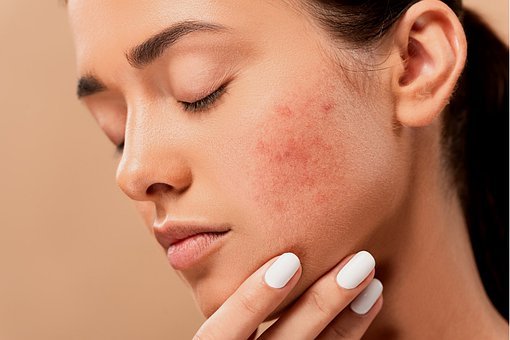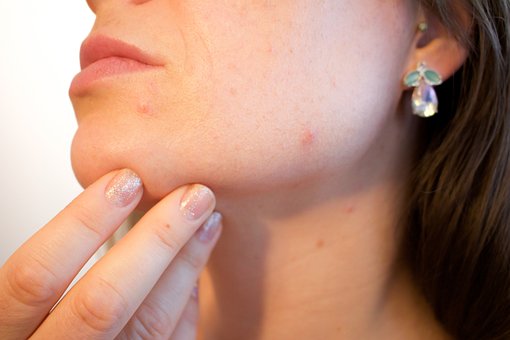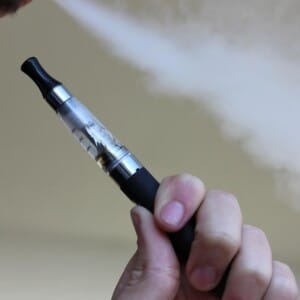Acne is now one of the world’s most common skin problems. It is a hair follicle disorder that affects almost every adolescent during puberty. Many forms of It are whiteheads, blackheads, bumps, cysts, and nodules. It’s not harmful but skin scars will remain. Although the physiological incidence of acne is basically natural, some conditions can aggravate the condition including Hormones fluctuate during menses time, manipulating such as acne lesions pick or prodding, etc
How is acne caused?
Acne begins when the pores become blocked by oil and dead skin cells. Some cases of Its are serious, but the usual symptoms are whiteheads, blackheads, and bugs.
Facts Usually Do Not Play A Part In Acne
Food
Sometimes parents advise young people to avoid pizzas, gravy, fried foods, and fast food. Although these products might not be good for general health, their causative function in acne is not important. While a high carbon diet, milk, and pure chocolate have been involved in recent studies in aggravating acne, the results are still a long way from being known.
Dirt
Oxidized oil is blackheads, not dirt. Sweat causes no acne and produces completely different skin glands. The skin may, however, be dry and irritated by constant washing.
Stress
Some people get too angry by picking and lasting longer. However, stress does not directly play a large part in acne causation.
Facts That Plays Role In Acne
Heredity
It is probably that your acne would be harder to handle if one of your parents had serious acne.
Pressure
Caps, chin braces, collars, suspenders, etc., may exacerbate acne in some patients.
Medicines
Some drugs, such as iodides, bromides, or oral or injected steroids, may trigger or exacerbate acne. However, most acne cases don’t have to do with drugs.
Cosmetics
It is important to read the list of ingredients of the many available brands of skincare products and choose those with water, first or second if you are concerned with acne. Usually, these items dependent on the water are the safest for acne patients.
Which are the acne symptoms?
Acne can find on the body almost everywhere. It occurs most often on the face, back, neck, chest, and shoulders. Usually, if you have acne, you can find white or black pimples. The blackheads are both known as blackheads and whiteheads. Blackheads open on the skin surface giving it a dark look due to the oxygen in the air. Whiteheads are shut just below the surface of the skin to make them look white. Although the most common lesions in acne may be white and blackhead, other forms may also occur. Inflammatory lesions tend to cause skin scarring. Like
- Papules are tiny, red, raised bumps caused by inflamed or infected hair follicles.
- Pustules are tiny red pimples with pus at their ends.
- Nodules under the surface of your skin are robust, frequently painful lumps.
- Cysts contain pus and are commonly painful, long tubes below your skin.
How does acne get treated?
Treatment at home
Some self-care exercises can do at home to avoid pimples and remove acne. Acne home remedies include: Acne
Every day, cleanse your skin from excess oil and dirt with mild soap.
Use water-based or noncomedogenic beauty shampoos to keep your hair out of your face
Do not pinch or pimple the oils and bacteria excess
Don’t wear headbands that don’t touch your ears
The Medication
A few over-the-counter acne medicines offer if self-care does not help with your Acne. Most of these medicines contain ingredients that can destroy or reduce your skin’s oil. Including:
In several acne creams and gels, benzoyl peroxide is present. It used for the drying and the prevention of fresh pimples. The peroxide of benzoyl also destroys bacteria that create acne.
Sulfur is a natural, distinctive odor component use in many lotions and cleansers, and masks.
The ingredient used to kill dead skin cells is resorcinol.
Also in soaps and in acne washes, salicylic acid is used. This helps to avoid plugging pores.
More
Women with hormonal acne can treat with birth control pills or spironolactone. These drugs control hormones that can trigger acne by reducing oil production. Isotretinoin is a vitamin-A drug used to treat severe nodular acne in some cases.
It is only used when other therapies do not perform. It may cause severe side effects. Your doctor can advise procedures for treating serious acne and preventing scarring. This works by eliminating harmful skin and reducing the output of oil. Including:
Photodynamic therapy uses medicine and a special light or laser to minimize oil output and bacteria. Additional lasers can use alone to improve acne or scarring.
Dermabrasion eliminates the spinning brush in the top layers of your skin and is better to treat acne cicatrization in contrast to acne care. A milder procedure to kill dead cells of the skin.
Microdermabrasion chemical peel removes the top layers of your skin. The skin pulls off to show that the skin is less affected. Chemical peels can enhance mild acne scarring.
If your acne consists of large cysts, your doctor may suggest using cortisone injections. Cortisone is a natural steroid that your body produces
Acne is a common issue with many triggers. Experts accept that the most efficient traditional therapies, such as salicylic acid, niacinamide, or benzoyl peroxide, can found by some to be irritating. Many are trying natural remedies. The majority of home treatments have not proved clinically successful, but are available as alternative therapy choices.
However, if you have serious acne, you may need to see a dermatologist. Visit-Dermatologist in Allahabad





